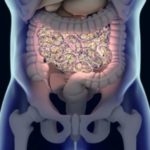The Gut: Where Bacteria and Immunity Meet
By Chelsea Garcia, MEd ACSM Certified Exercise Physiologist
The human microbiome continues to be a bit of an enigma. We are now starting to understand all of its vast capabilities. It has been cited as “the last undiscovered human organ.” But what we do know is that its role in our health is vital.
The gut microbiota that resides in the gastrointestinal tract provides essential health benefits to you, particularly by regulating immune homeostasis. Moreover, it has recently become obvious that alterations of these gut microbial communities can cause immune disruption, leading to autoimmune disorders. Numerous forces from our genes to our environment, shape our biome on many complex levels. How we fight disease; for example, the COVID 19 virus, and even how we display symptoms of this illness, is as individually significant as our own microbiome.
What we learn from the COVID 19 virus pandemic will impact our lives forever. Successful viral treatments and illness preventions will emerge to reshape the medical landscape globally. Eventually, even before a vaccine is discovered, our human immune system will emerge from this victorious.
_________________
The gut is responsible for fighting off pathogens, like viruses that enter the microbiome and alter our biology by competing for the nutrients we need to survive. An unhealthy diet will suppress the microbiota’s anti-infectious barrier potency, allowing the infection of different pathogenic microorganisms from the environment.
In addition, some species of microbiota, enrich the new condition of dysbiosis, or gut microbe imbalance, and manifest their pathogenic potential by producing opportunistic infections. Gut microbiota can also produce neurochemicals with hormonal activities that may extend beyond the gut, being involved in the modulation of anxiety, depression, cognition, pain, inflammatory, autoimmune, and metabolic diseases.
What we eat has a dramatic influence on our microbiome and the efficiency of our immune system. Until recently, most people thought about gut bacteria as fairly separate from us. They help with digestion, but otherwise, they stay on their side of the intestinal lining, and we stay on our side. But, there is a lot of interaction between the body’s immune system and bacteria in the gut.
Researchers at Johns Hopkins are now in the early stages of figuring out how the composition of the gut changes in different diseases, how the body’s immune system interacts with these tiny viral hitchhikers and particularly how that relationship may function in disease.
Dan Peterson, assistant professor of pathology at the Johns Hopkins University School of Medicine, “The immune system is inside your body, and the bacteria are outside your body.” And yet they interact. For example, certain cells in the lining of the gut spend their lives excreting massive quantities of antibodies into the gut. Our immune systems keep us in healthy working order. The majority of our immune system is in our gut. We need to make sure our digestive system is functioning properly so that our immune system is in tip-top shape.
The immune system defends against all types of infections that we unknowingly come into contact with every day. On occasion, the germs, viruses, and bacteria can infiltrate our bodies, hijack our healthy cells, multiply, and make us sick. However, with healthy eating and hygiene strategy, our microbiome will safeguard our bodies from illness. To strengthen the efficiency of our complex microbiome, we must feed it with a strategy to encourage its healthy function.
Your gut microbiome plays a very important role in your digestion, immune function. Gut bacteria and flora protect, strengthen, and nourish our bodies by providing beneficial bacteria. There are tens of trillions of micro-organisms in our gut and intestines that help break down the food we ingest. Everyone’s gut microbiome is made up of more than 3 million bacterial genes. The most populated areas are the jejunum in the small intestine, large intestine, and colon. Bacteria colonize here and communicate with our bodies in many mysterious ways.
Why is the gut microbiome important? Recent studies have shown that the makeup of our gut microbiota could affect our risk of obesity or other metabolic diseases. Not everyone has the same types of bacteria, and there are a lot of things that influence a person’s microbiome. For example, the method of delivery at birth, breastfeeding vs. formula, environment, and how much exercise or physical activity you do per day. All of these factors affect the unique composition of your microbiome. Although we may not be able to change how we were brought into this world or the environment we live in, one thing we CAN control is our physical activity levels and nutrition.
Did you know your skin is the first defense against infections? It’s also the largest organ in the body. Don’t overlook keeping it clean and moisturized. Make sure cuts or wounds are healing in the appropriate amount of time. Open cuts and wounds are exposed to breeding grounds, the perfect hosts for bacterial infection. Keep your wounds clean and change your dressings often to decrease your risk of infection. Take steps to decrease infection by wiping down surfaces and washing your hands frequently.
There are also daily lifestyle changes that you can make to help improve or strengthen your immune system and keep your gut healthy. If you smoke, quit. Smoking makes you more susceptible to respiratory infections. Avoid alcohol or only drink in moderation. If you don’t drink alcohol, your two steps ahead of everyone else. Alcohol metabolites feed on good bacteria in your gut and can lead to malnutrition and complications in disease resistance. Make sure you are eating a balanced diet full of fruits and vegetables. The fiber they leave behind in your bowel is the food that good bacteria need to survive.

Stay active. Move your body. Avoid sitting long hours. Seek a healthy and sustainable weight. At PHASE IV we help you determine a healthy weight by metabolic testing. We program your nutrition plan to strengthen your microbiome and metabolism. Stress is a risk factor for developing metabolic or cardiovascular-related diseases. We are living through one of the most stressful times in our life, and many of us feel helpless. Keep moving. Exercise. Feed your microbiome. Meditate. Do this with purpose: your health.
At PHASE IV we develop prescription protocols for your nutrition and exercise. We take all the guesswork and anxiety out of figuring out what to eat and when and how much with a daily nutrition plan based on your RMR metabolic analysis. We will structure your exercise according to your current fitness level and bring you to your goals safely, without injury.
If you have pain when you move, please contact Forster Physical Therapy 310-656-8600 and schedule an injury assessment.
We are an essential business as a medical practice and proudly serve our community during this pandemic. We have made it possible to be open all of our business hours by naturally reducing our caseload, keeping only our essential staff on duty, and incorporating advanced disinfecting protocol and air purifiers. If you have questions about your health, please call and speak to our practitioners on call
email chelsea@phase-iv.net or
shelby@phase-iv.net
and schedule a complementary consultation.
Article Sources:
Gut Microbes. 2012 Jan 1; 3(1): 4–14.doi: 10.4161/gmic.19320
Aspects of Gut Microbiota and Immune System Interactions in Infectious Diseases, Immunopathology, and CancerVeronica Lazar1,2†, Lia-Mara Ditu1,2, Gratiela Gradisteanu Pircalabioru1,2†, Irina Gheorghe1,2, Carmen Curutiu1,2, Alina Maria Holban1,2, Ariana Picu1,3, Laura Petcu1,3 and Mariana Carmen Chifiriuc1,2*†
NEWS RELEASE 2-JUL-2019 Gut microbes protect against flu virus infection in mice CELL PRESS
Human Microbiome Journal Volume 10, December 2018, Pages 11-20
Wheat, Microbiome and Health: The Science Behind Gut Health and Food Intolerances
Corrie Whisner, PhD Assistant Professor of Nutrition Arizona State University
The Gut Microbiome in Health and in Disease
Andrew Shreiner; John Kao; Vincent Young
Health Immune System: A Complete Guide
Harvard Health Publishing- Harvard Medical School







